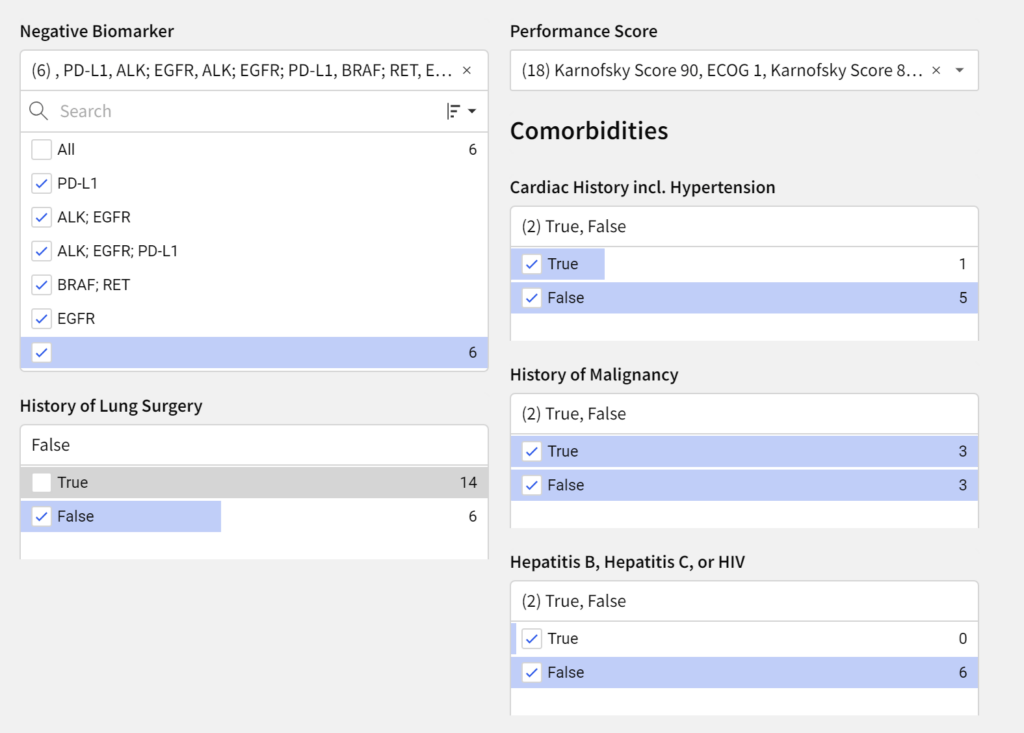Rapid Identification of Cancer Patient Cohorts and Care Patterns With Generative AI

Cancer care varies widely across different communities, but cancer centers struggle to reduce this disparity. One major obstacle is the lack of access to cancer-related data, such as stage, treatment, biomarker testing, and other indicators, from the unstructured EMR documents. Cancer registries may provide some data, but they are often outdated or incomplete, especially for biomarkers, later lines of therapy, and advanced treatments like clinical trials or CAR-T therapies.
The evolution of cancer-specific Natural Language Processing (AI/NLP) has greatly enhanced electronic medical record analysis, enabling the discovery of care patterns. However, not all AI solutions are created equal. OncoLens’ approach seamlessly integrates AI tools with continually updated specialized oncology knowledge models, enabling the identification of oncology-specific keywords, contexts, and patterns. This integration yields valuable, actionable insights, facilitating timely interventions and significantly impacting patient care.
Some examples include:
- Finding cancer staging data — Staging information can now be extracted from unstructured fields, clinical notes and pdfs. AI systems can and must be trained to look for AJCC staging or other staging methods like BCLC (Barcelona Clinic Liver Cancer) or FIGO, along with the time of staging. This information is foundational in oncology to identify quality improvement opportunities and care patterns.
- Clinical trial patient identification — Specific trials require extracting key clinical information. For example, the ADAURA2 trial requires identification of patients who have had a complete resection of the tumor and not just “biopsy” or wedge resections, in addition to other criteria like excluding Squamous Cell histologies and early identification of patients with stage IA2 or IA3 disease. This cohort needs to be tested for EGFR mutations early to see if they are eligible for this trial. Today this extremely manual process can be streamlined with AI/NLP performing the prescreening of patients, savings tens of hours per month in identifying patient cohorts for uncommon disease type trials.
- Identification of patients with particular histologies for genetics counselling — Identification of patients with specific cancer types, like pancreatic cancer and prostate cancer, who have historically not had access to genetic counseling can be identified with the help of real time trackable reports. For instance, patients with metastatic prostate cancer or high or very high-risk prostate cancer and patients with strong family history of other cancers need to be screened for prostate cancer susceptibility genes. Likewise, all patients diagnosed with exocrine pancreatic cancer need to be tested for pancreatic cancer susceptibility genes including ATM, BRCA, CDKN2A and Lynch Syndrome genes.
- Patient identification for Internal Pharmacy Referral — Early identification of patients who should be referred to the Cancer Center pharmacy program for faster, higher quality access to care, including counseling, as in subsets of patients with lung cancer who may need Ipilimumab, pembrolizumab, cancers requiring CAR-T therapies or cancer patients receiving chemotherapy that requires growth factor support with pegfilgrastim.
A visual of different types of search criteria is given below.




